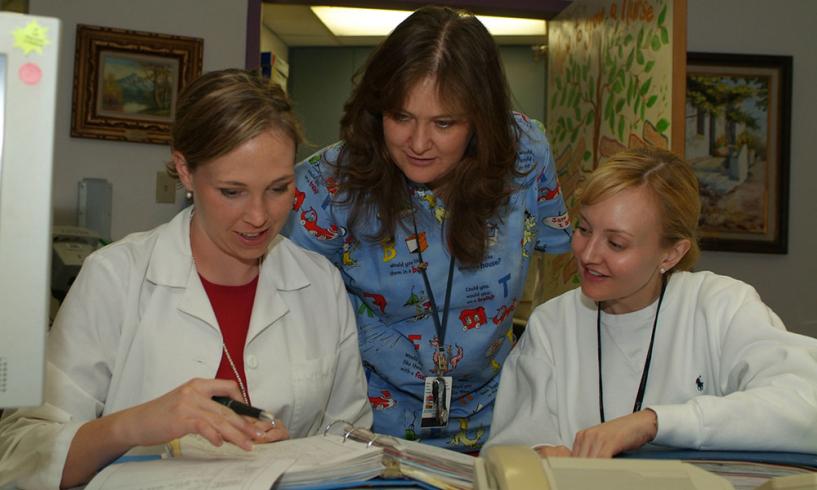Clara Beaver, MSN, RN,AOCNS®, ACNS, BC Clinical Nurse Specialist, Karmanos Cancer Center
“I am currently the manager of an ambulatory patient center at Karmanos Cancer Center in Detroit, MI. Twenty-five percent of my role is still as a clinical nurse specialist (CNS). I knew I wanted to be a nurse at the age of two and, at 22, I graduated from nursing school. I chose oncology because my grandfather had breast cancer and I watched him die of that—that’s truly when I chose oncology nursing.
"I started as an inpatient oncology nurse, but I always wanted to do more; I wanted to give chemotherapy. So I pursued an ambulatory infusion center position, and, two years after I graduated from nursing school, I was working in ambulatory infusion, which is not very common, but it worked and I loved that job. But while I was in school, I knew I wanted to teach. So, after being out of school for four years, I decided to go back to graduate school to get my master’s degree as a CNS.
"I worked as a CNS in a pulmonary unit for a while because I couldn’t find a job in oncology. Then, about 10 years ago, I started at Karmanos Cancer Center as the ambulatory CNS—because of my infusion experience, it worked out very well. Then I worked on the inpatient floor for a couple of years and, just recently, came back to ambulatory as a CNS. I was then given the opportunity to become the manager of the infusion center, which is what I love to do. As you can see, I’ve done a little bit of everything—inpatient, outpatient, CNS, management, and teaching.”
Pat Carter, PhD, RN, CNS Associate Professor, University of Texas at Austin
“I started my first nursing job as the assistant activity director at the age of nine in the nursing home that my mother ran at that time. I had a little badge and smock. I would go around, and I fell in love with oncology at that time. Fast forward many years, I became a nursing assistant, then I received my associate’s degree, my bachelor’s degree, my master’s degree, and my PhD at the age of 32. I knew what I wanted to do once I started.
"I had great mentors who, even though I didn’t have faith in myself, had faith in me. They said, ‘You have to get this next degree. Here’s the application; let me read your essay.’ I realized I not only wanted to move through this path but I wanted to be that person who sees the light in someone else. I have been placed in wonderful positions to be that spark for other people and say, ‘I have faith in you; we’ll work together.’ I teach incoming college freshmen all the way through the PhD program. Academia allows me, through my research, to still be connected to patients, so I didn’t have to give that up. And it also allows me to keep my clinical skills.”
Nicole Korak, MSN, FNP-C Senior Director, HMS, Quintiles
“In nursing school, I struggled between if I wanted to be a nurse or a teacher; I love teaching but I love being a nurse as well. But I didn’t want to give up where I was because it was very rewarding. I went into oncology and have done that for 25 years. But, somewhere along the way, I became that ‘grumpy nurse’ that no one wants to work with—I recognized that in myself. But I loved oncology and I didn’t want to give up that part of my life; no matter what I do, when people ask me what I do, I tell them I’m an oncology nurse.
"So there was an opportunity for me to become a clinical nurse educator. We had a nurse come into our clinic to teach. I watched her and thought it was everything I ever wanted to do because it was teaching—teaching nurses—in my area of specialty. But this nurse had her master’s degree, and I didn’t have mine at the time, so I thought it would never happen. But a drug representative told me about an opening, and the company gave me the opportunity to be the oncology nurse educator. Now, I work for a company called Quintiles. I’ve been promoted into management, which is one of those things I never wanted to do. But I have 100 nurses reporting to me, and I love it. Now, I have influence. I work for a pharmaceutical company and they develop education materials, and they use my advice. I remember to look with my nursing eyes and think with my business brain to develop materials that are going to best benefit patients.”






